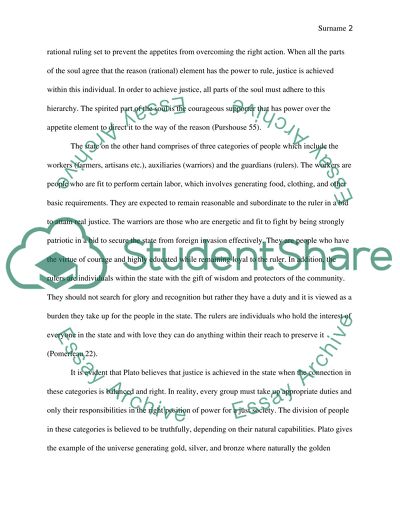Cite this document
(“Platos the Republic: Justice Essay Example | Topics and Well Written Essays - 1000 words”, n.d.)
Retrieved from https://studentshare.org/history/1486892-platos-the-republic-justice
Retrieved from https://studentshare.org/history/1486892-platos-the-republic-justice
(Platos the Republic: Justice Essay Example | Topics and Well Written Essays - 1000 Words)
https://studentshare.org/history/1486892-platos-the-republic-justice.
https://studentshare.org/history/1486892-platos-the-republic-justice.
“Platos the Republic: Justice Essay Example | Topics and Well Written Essays - 1000 Words”, n.d. https://studentshare.org/history/1486892-platos-the-republic-justice.


